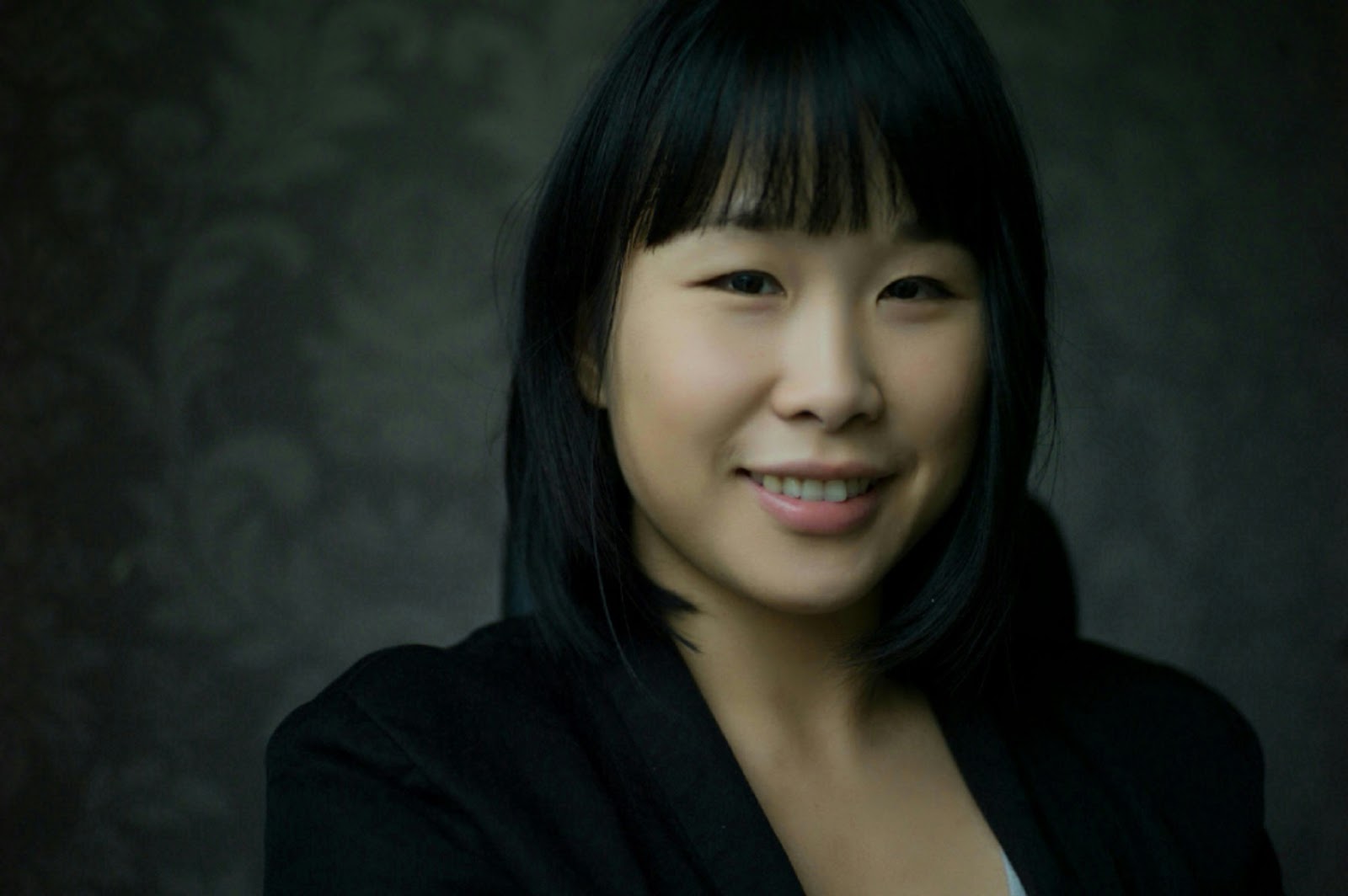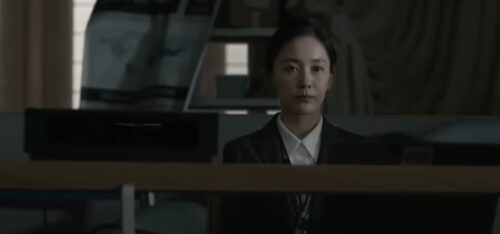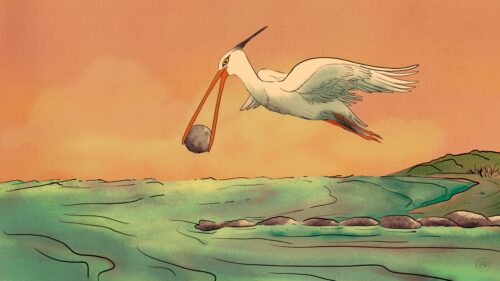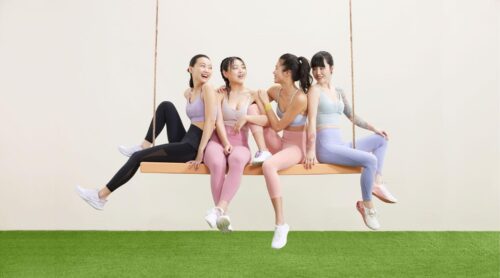One China journalist’s quest to amplify female voices in media

It was a podcast episode about China in late 2016, featuring only male voices, that spurred Joanna Chiu to action. She had been a journalist in Greater China for four years — starting in Hong Kong in 2012 before moving to Beijing in 2014 — and had always been aware of the disparity in the number of men compared with women asked to talk about China on panels and in interviews, but there was something about that episode that set her off. Amid a Twitter backlash, Chiu says “People were very frustrated,” and realized “I was tired of it too and disappointed because I thought people who were otherwise progressive and shared the same values as me were producing pieces and organizing events that only featured male experts.
“There are often valid excuses when you ask people, so I thought of doing the list to remove those excuses.”
“The list” was a crowdsourced directory, hosted on Google Doc, of female experts who could speak on China issues. Chiu began by dropping in 50 of her own contacts. She asked fellow journalists based in China to add to it, and the list quickly swelled to include more than 100 names. She then shared it online:
Are you a female #expert on #China, #HK, #Macau, #Taiwan or know any? Please add yourself + others to this directory https://t.co/CyD4agWrn0
— Joanna Chiu (@joannachiu) January 19, 2017
The Greater China Female Experts Open Directory, as it’s called, now lists some 400 female experts who focus on a diverse range on Chinese issues, from Chinese cinema to business/investing to human rights. (The list is currently closed, but those who want to add or amend can email Chiu at contact@joannachiu.com.)
“When there are hundreds of women you could contact easily and it’s easy to see what areas of expertise they have and where they are based, this makes it a lot easier for journalists and event organizers, even if they are on a tight deadline to put something together,” says Chiu, who is currently the China and Mongolia correspondent for Agence France-Presse (AFP).
“I’ve had lots of people tell me that they were trying to push for better diversity for a while as a principle, but once there was a directory to actually send around, they started seeing changes in their colleagues’ and supervisors’ actions.”
Chiu says she was inspired by her supervisor at an internship at The Nation magazine, who was the coordinator for the nonprofit Women Action and the Media in New York (or WAM! for short). In 2011, Chiu started the WAM! Vancouver Chapter, a seminal moment for her. “[It’s] when I understood why communities of women are so helpful,” she says. “I think everyone involved with WAM! benefited — in their careers as well as psychologically dealing with the stressful industry.”
Chiu’s projects include more than just the list. She recently conceived NüVoices, a women writers collective, which will hold a launch party on Saturday in Beijing (see details below) that will also see the launch of an anthology showcasing female writing on China.
We recently caught up with Chiu to talk about the Greater China Female Experts Open Directory and her other projects.
Jemima: What was the motivation behind the list?
Joanna: I’d been talking with some colleagues for a while about how, despite there being many female experts who can talk about a whole host of topics to do with China, journalists and event organizers have a tendency to reach out to men more than women. It also seemed to be the case that men are more willing to be interviewed and less likely to say “I’m not the right person to talk to.” A solution was to have a directory to give everyone more choices — rather than calling up a random expert you see online, you can use a directory that clearly lists what people’s various expertise are.
On an episode of the Sinica Podcast, you talked about women being more reserved when it comes to acknowledging their achievements — did you get a sense that fewer women were putting themselves forward, and if so, does this point toward the problem of female reticence?
The way women were putting themselves forward was telling. For example, they might be very polite and say things like, “I’m not sure if I should be on it but I’m just going to do this and add myself.” I’d reply, “Of course, obviously you’d be an amazing contact for any journalist or event organizers to have.” So there is some humility, and humility isn’t necessarily bad — my message isn’t “women be arrogant,” but instead, “humility is nice but don’t let it get in the way of promoting yourself and sharing your findings, your experiences, and your research.”
How diverse would you say the list is in terms of including Chinese-educated women who live and work in China versus those who were educated and work abroad? There seems to be an imbalance.
There are so many factors. I don’t have figures, but just talking to friends, women in academia in China seem to face much more sexism. A lot of the senior figures in universities are male and the university administrators are almost all male.
But also, especially for experts based in China, I was extra careful as an administrator to vet those listings. For most of us based outside of China working on China, it’s really good to have publicity, but for certain Chinese citizens it could actually lead to problems, especially if they’re working in fields like human rights and women’s rights. If there are fewer China-based people on the list, it might reflect that dynamic, where having their information publicly listed might not be the safest route.
But there should be more diversity of regions. I would encourage people to recommend themselves [and those] who are in China — that’s actually why I helped start the NüVoices collective, as a way to build a community among women living in China as well outside China.
Also on the Sinica podcast, you talked about the immense positive feedback you’d received. One year on — and now that the list has doubled in size — what feedback are you receiving?
The more that people talk to journalists, the more they try to cater themselves to what they think the media wants — more soundbites and things like that — and I think that if you’re not so seasoned, sometimes your comments can be a bit more fresh and unique.
A lot of people have given me feedback saying, “Wow, by talking to this person who usually doesn’t get quoted in the media, I heard a very different point of view.”
I’ve also found it particularly positive when I hear from male journalists and male event organizers…just the volume of men who were really supportive was really nice. A lot of men are also sick of sitting and listening to “manels.” They also want to support their female colleagues and they want to hear from a broader diversity of people in terms of gender, ethnicity, country, and education backgrounds. It just makes for a more exciting dynamic and more exciting articles to read. I think everyone’s behind this.
You just mentioned your upcoming event, the launch of the NüVoices anthology. How did you come up with this idea?
It was an offshoot of the list and a continuation of what’s happening in Beijing already. In Beijing there are so many female correspondents and writers; we had developed an organic community where we were talking online and getting together offline, socializing quite frequently. We would share our experiences and it became apparent to me that I’m surrounded by so many amazing, talented women.
Foreign correspondence was traditionally male-dominated…but when I look around now, I think the majority writing about China in different forms — digital, magazine, translation — are women. Yet most books are still written by men, and often by Caucasian men. For me, that didn’t reflect the real demographics — there are talented people [who aren’t white men] who should be writing books about China, who have talent and great stories to tell.
We didn’t want to criticize and pour shame on publishers for choosing pieces written by white men, or pressure individual women to put themselves forward and write book proposals…we wanted to do something positive. It seemed like one of the solutions was for women to work together as a collective and to support each other’s writing. An anthology is less labored because we’re all contributing a shorter piece, and it’s more collaborative so we’re also helping each other. The whole project ends up being a part of something that promotes, hopefully, dozens of women.
These projects do different things, but they both seem to have a common emphasis on collaboration, networking, and building a community. Why do you think that’s so important?
It’s how you overcome certain glass ceilings and certain obstacles. Taking influence and reputations in individual careers and pooling it together as a group highlights what we can offer.
But I hope that the experience of doing this together will make it a lot easier for us to work on longer-term ambitious projects after this. Traditional print publishing is so important to get into, but we wanted to make it not just about one project but about the community: we have a website now, we have Twitter, and we have several WeChat groups. It’s a way to cross-promote each other’s work and to do mutual mentorship and workshopping.
What are the new plans on the horizon?
With the launch party on Saturday (March 10), we want to get everyone together in a room: those who have been very intimately involved in the project, along with our consultants, our supporters, a lot of male journalists, writers, and artists, as well as lots of local Chinese writers and translators. In addition to celebrating the work of women we want to get everybody contributing to structuring a collective and giving ideas on what kind of projects and events we should do and what kinds of ways we can work together more. It’s still early stages and we want to get everyone’s feedback.
For those in Beijing, Joanna Chiu is moderating the opening event at the Bookworm Literary Festival tonight (March 8), a panel discussion called Women of the World. It begins at 7:30 pm.






